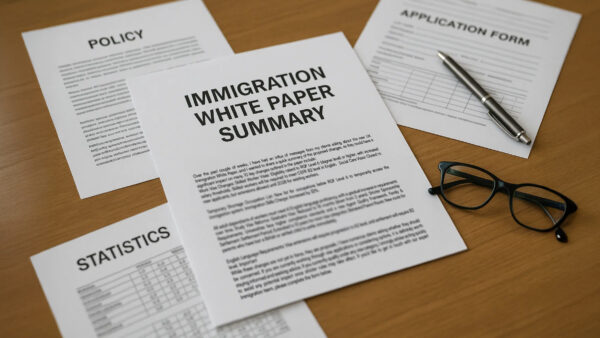Formally adopted by the European Council in late November 2022, the EU’s Corporate Sustainability Reporting Directive (CSRD), will make almost 50,000 companies, including SMEs, subject to mandatory sustainability reporting.
As well as applying to EU-companies the Directive will also capture non-EU companies which have subsidiaries operating within the EU or which are listed on EU regulated markets. Affected companies will have 12 European Sustainability Reporting Standards (ESRSs) to apply, and these ESRS apply regardless of the sector in which you operate.
Affected entities must also disclose on Environment, Social, and Governance (ESG). There are over 120 metrics and targets. In addition, CSRD reporting will require far more rigour and detail, as well as compliance with mandatory limited assurance ESG reporting requirements.
What Is The Background To The Reporting Changes?
According to the Explanatory Memorandum, the European Commission saw a significant gap between what organisations are required to report on under the existing Non-Financial Reporting Directive (NFRD), and what the users of that information needed to know. For example, the reporting framework under NFRD does not guarantee that the data provided by companies is reliable, comparable, and relevant. Also, the reporting framework under NFRD lacks accuracy and companies often struggle to identify the information they need to provide.
The Explanatory Memorandum concluded:
“The primary users of sustainability information disclosed in companies’ annual reports are investors and non-governmental organisations, social partners, and other stakeholders. Investors, including asset managers, want to better understand the risks of, and opportunities afforded by, sustainability issues for their investments, as well as the impacts of those investments on people and the environment. Non-governmental organisations, social partners and other stakeholders want to hold undertakings to greater account for their impacts of their activities on people and the environment.
The current legal framework does not ensure that the information needs of these users are met. This is because some companies from which users want sustainability information do not report such information, while many that do report sustainability information do not report all the information that is relevant for users. When information is reported, it is often neither sufficiently reliable, nor sufficiently comparable, between companies. The information is often difficult for users to find and is rarely available in a machine-readable digital format. Information on intangibles, including internally generated intangibles, is under-reported, even though these intangibles represent the majority of private sector investment in advanced economies (e.g., human capital, brand, and intellectual property and intangibles related to research and development).”
When Does CSRD Reporting Apply?
The CSRD revises, expands, and strengthens the sustainability reporting requirements of the NFRD. It will be effective from 1 January 2024 for those entities already subject to the NFRD) (reporting in 2025) and from 1 January 2025 for all companies newly caught within its scope (reporting in 2026).
What Companies Will Be Subject To CRSD Reporting?
The following entities will need to comply with CRSD reporting requirements:
- All large companies based in the EU that exceed two of the following criteria; a) 250 or more employees, or b) €40 million in turnover, or c) €20 million in assets.
- All companies listed on EU regulated markets. This includes companies not established in the EU but are listed on EU regulated markets generating a net turnover of €150 million and which have at least one subsidiary or branch in the EU.
- From the 2026 financial year, all SMEs listed on EU regulated markets.
In relation to non-EU companies, in order to be within the scope of the CRSD, the global corporate group of a non-EU business must have generated a net turnover within the EU of €150 million for two consecutive financial years, and also either:
- have an EU subsidiary that meets the thresholds under Article 19a of the CSRD (e.g., is a large undertaking or public interest entity); or
- have a branch in the EU that generated €40 million net turnover in the preceding financial year.
The standards applied to SMEs will be less onerous than those applied to large companies. The Commission states:
“The Commission will adopt standards for large companies and separate, proportionate standards for SMEs. The SME standards will be tailored to the capacities and resources of such companies. While SMEs listed on regulated markets would be required to use these proportionate standards, non-listed SMEs – which are the vast majority of SMEs – may choose to use them on a voluntary basis.”
What Are Affected Companies’ Obligations Under The CRSD?
If your business falls under the new CRSD reporting standards, you will need to report on the following:
- Environmental protection
- Social responsibility and treatment of employees
- Respect for human rights
- Anti-corruption and bribery
- Diversity on company boards (in terms of age, gender, educational and professional background
The above requisites are currently mandatory under the NFRD. The below requirements cover the additional reporting under the CRSD.
- Your company’s strategy towards sustainable risks.
- Referring to investment and financial strategies:
- how your company plans to move its business model and overall strategy to ensure compatibility with the transition to a sustainable economy and limiting of global warming to 1.5°C, or
- a description of the time-bound sustainability targets the company has set for itself.
- Information relating to intangibles (social, human, and intellectual capital)
Conclusion
Reporting must be in line with the Sustainable Finance Disclosure Regulation (SFDR) and the EU Taxonomy Regulation.
When drafting reports, it is helpful to keep in mind the European Commission’s objective which is to ‘nudge’ organisations to direct capital towards sustainable investments to achieve viable and inclusive growth.
To discuss any of the points raised in this article, please contact Ann-Maree Blake or fill in the form below.









